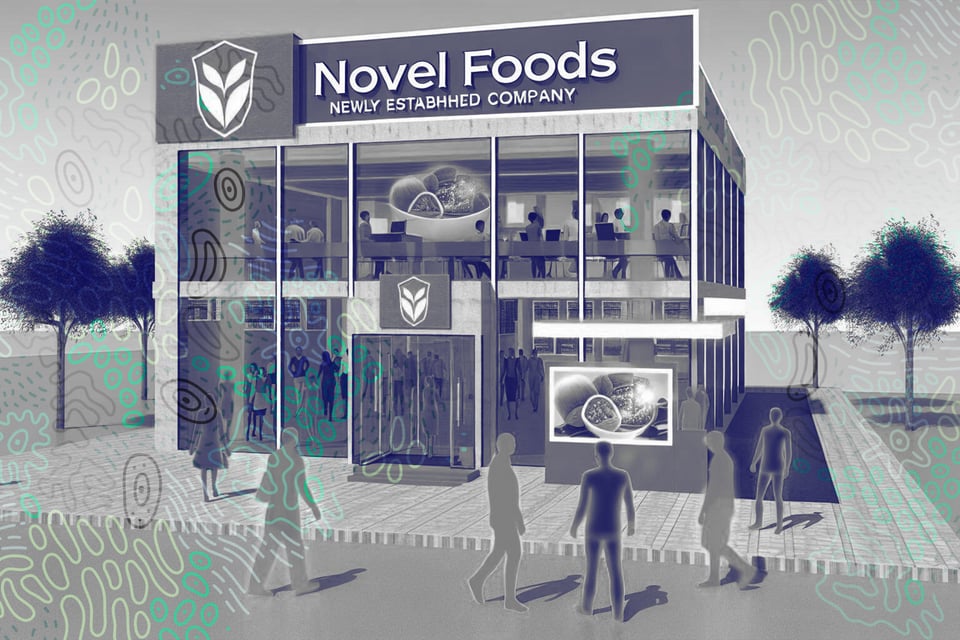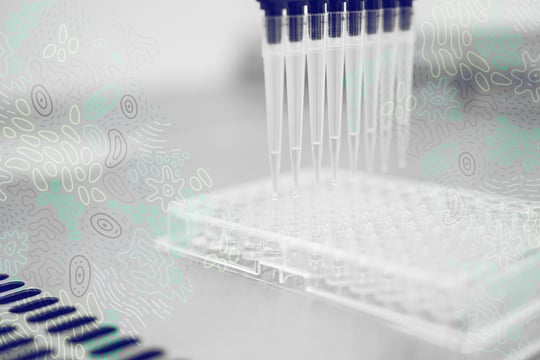
In the past decade, the food industry has seen a remarkable rise in novel food products, companies and innovative ingredients. Key drivers for this growth include the development of alternative proteins, health and wellness trends, and a focus on sustainability and the circular economy.
The next 5-10 years will likely see a proliferation of novel foods entering the market, driven by technological advancements, increasing consumer awareness, and a growing emphasis on sustainability. Here we will go over the different categories of companies working with novel foods.
What are novel foods?
According to the European Union (EU), any food that was not consumed “significantly” prior to May 1997 is considered to be a novel food. Novel foods can encompass a new vitamin like K2 (menaquinone) or extracts from existing foods such as oil extracted from Antarctic Krill (Euphausia superba), agricultural products from third countries like chia seeds and baobab fruit, and foods derived from new production processes. This article will focus on the last category divided into four subsections: microbial foods made with precision fermentation, cultured meat, edible insects, and fungal mycelium.
Precision fermented microbial foods: Pioneering alternative proteins
Companies like Perfect Day have challenged the dairy industry by using fermentation-based processes to produce animal-free dairy proteins. These proteins are created through microbial fermentation, specifically engineered yeast, which outputs whey and casein that mirror their cow-produced counterparts in functionality and taste but without the environmental footprint of traditional dairy farming. Similarly, Solar Foods is exploring the potential of single-cell proteins from microbes that convert carbon dioxide and electricity into a nutritious and sustainable protein source called Solein, potentially reducing dependency on agricultural land and water.
Cultured meat: The future of meat production
Cultured meat, also known as lab-grown or cell-based meat, is produced by culturing animal cells in a lab rather than raising and slaughtering animals. This innovation has the potential to significantly reduce the environmental impact of traditional meat production. Companies like UPSIDE Foods (focused on chicken, formerly Memphis Meats) and Mosa Meat (focused on beef) are at the forefront of this revolution, with UPSIDE Foods' cultivated chicken being the first cultivated meat approved for sale in the United States in November 2022. Other companies developing cultured meat products or related technologies include Believer Meats (Israeli, formerly Future Meat), GOOD Meat (Californian), TissenBioFarm (Korean), Multus Biotechnology (growth media), and Biobetter (tobacco plants as bioreactors).
Edible insects: A sustainable protein source
Insects are rich in protein, vitamins, and minerals, and are already consumed in some cultures. Notable companies in this space include Entomo Farms (cricket protein) from Canada and Ÿnsect (mealworm protein) from France, which are leading the way in insect-based products. They have been approved as animal feed but not yet for human consumption. Protix in the Netherlands, Aspire Food Group from the US, and Bühler Group in Switzerland, which focus on seven insect species suitable for human consumption and industrialised mass production, including mealworms, house crickets, and the black soldier fly. Post-Brexit, the regulation regarding edible insects changed in the UK, making them non-marketable without authorisation. In contrast, the USA and Canada permit the import and sale of insects for human consumption. Unlike the US and Canada, in the EU, edible insects fall within the definition of novel food, and several species are currently under review by the European Food Safety Authority. The Singapore Food Agency (SFA) has approved 16 species of insects for human consumption, including crickets, silkworms, and grasshoppers.
Fungal mycelium: Harnessing the power of fungi
Mycelium, the root-like structure from which fungi grow, is being developed as a novel alternative protein. Mycoproteins are grown using fermentation techniques and can be used in various food products. Quorn was a pioneer in this space, entering the EU market in 1985 before the Novel Food Regulation. Companies developing mycoprotein products include Mycorena, MycoTechnology (flavour enhancers) Nature's Fynd (alternative dairy), The Better Meat Co. (various alternative meats), Aqua Cultured Foods (alternative seafood), Enifer (animal feed), Bosque Foods (alternative chicken and pork), ENOUGH Food (protein ingredient for B2B use), and Kinoko-Tech (tempeh-style protein).
Algae: Nutrient-dense and sustainable
Algae are nutrient-dense and can be cultivated in water. They are used in products like seaweed snacks, algae-based oils, and plant-based protein powders. Companies like Origin by Ocean (ingredients for biocomposites, growth substrates, and additives in food and feed), Algama (alternative animal protein), AlgaeCytes (supplements, cosmetics and pharmaceuticals), and Algae Health (Astaxanthin) are exploring the potential of algae-based foods and nutraceuticals.
These novel foods are predicted to disrupt the European food industry and become important ingredients of the future. Besides these above-mentioned top categories, a variety of novel foods are entering the market within the next 5-10 years.
10 novel food tech companies to watch in 2024
- Impossible Foods - Famous for its plant-based burgers that closely mimic the taste and texture of beef, Impossible Foods continues to expand its product line into other plant-based meat alternatives.
- BlueNalu - A leader in cellular aquaculture, BlueNalu is focused on developing sustainable seafood products by growing fish cells in a lab, addressing overfishing and ocean health issues.
- Perfect Day - Utilising fermentation to create animal-free dairy proteins, Perfect Day is innovating in the dairy sector by producing proteins that mirror the nutritional profile of traditional cow’s milk.
- Motif FoodWorks - Leveraging biotechnology to improve the taste, texture, and nutritional content of plant-based foods, Motif FoodWorks is at the forefront of enhancing the sensory experience of vegan and vegetarian foods.
- GOURMEY - This Paris-based startup is working on cultivating poultry products from cells, aiming to offer a sustainable alternative to conventional poultry while reducing animal farming.
- Origin by Ocean - Focused on harvesting and refining harmful algae, such as sargassum seaweed, to produce sustainable and natural ingredients for the food, feed, and cosmetics industries.
- Nature’s Fynd - Utiliding a volcanic microorganism that produces a nutritious protein called Fy, Nature’s Fynd creates meat and dairy alternatives, boasting a minimal environmental footprint.
- Solar Foods - Focused on creating an edible microbial protein from air and electricity, Solar Foods’ Solein protein is a groundbreaking development that could revolutionise the way we think about food production.
- Upside Foods - Formerly known as Memphis Meats, Upside Foods is a cultivated meat company that produces meat directly from animal cells, aimed at providing meat without the downsides of conventional livestock farming.
- Mycorena - Specialising in fungal fermentation, Mycorena develops sustainable and scalable protein products using fungi, advancing solutions for the alternative protein industry.
Market entry and regulatory challenges
Despite their innovative approaches, novel food companies face significant hurdles in bringing their products to market. The EU's Union list of novel foods sets stringent requirements for market entry, including detailed safety assessments and compliance with specific labelling and usage conditions. This regulatory environment creates a challenging landscape for new entrants but ensures high safety standards for consumers. The European Union’s Union list of novel foods initially containing 125 authorised novel foods in 2017, now includes around 200 entries. The Union list is continuously updated by the European Commission to include newly authorised novel foods in their generic, not branded, name.
The future of novel foods
While most novel foods are still in the development phase, with a limited number of products authorised and available on the market, their market value has been steadily increasing. For instance, annual investments in fermentation-based alternative proteins grew from $5 million in 2013 to $587 million in 2020, according to PwC. This surge in investment underscores the market's confidence in the viability and growth potential of novel foods. As novel food companies continue to innovate, they are poised to disrupt the European food industry and become essential components of the future food landscape.
Stay informed about how Biosafe is navigating these changes and leading in food safety by visiting our blog and participating in our upcoming webinars. Together, we are shaping the next decade of food safety innovations.
Biosafe is your guide to successful food and feed product approval, providing extensive expertise in food safety assessment, research and legislation. By helping to bring new and more sustainable food solutions to market, we are working with our customers to create a safer food future.
Read more: What are novel foods and how do they reach the market?












